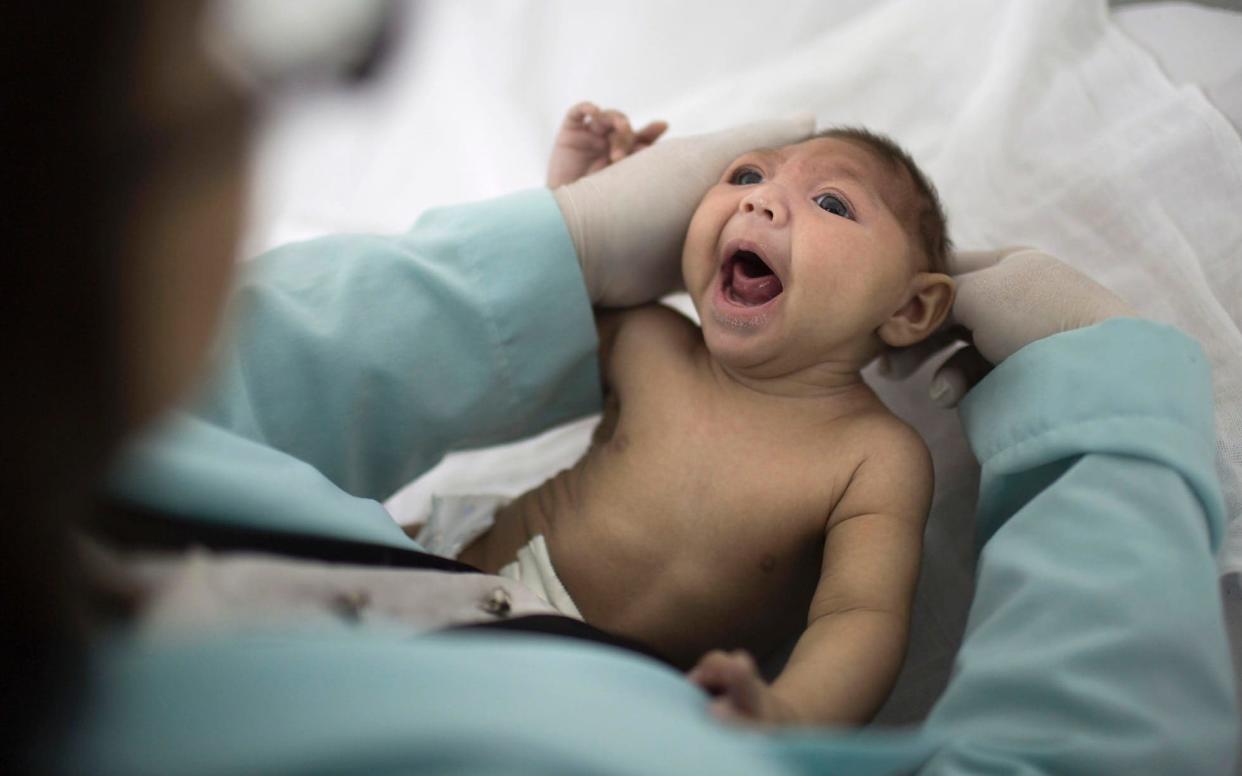World must prepare for return of Zika, scientists warn

Hot weather and drought could spark the return of the Zika virus, scientists have warned.
The disease, transmitted by mosquitoes, spread throughout Brazil and Latin America in 2015 and 2016 where it was linked to a spate of neurological defects among babies born to mothers infected with the virus.
The World Health Organization declared it a public health emergency of international concern in 2016. There have been no new outbreaks of the disease since January 2017 but it is on WHO's watchlist of diseases with the potential to spark a pandemic.
The rapid spread of the disease is thought to be linked to the El Niño climate cycle, which caused high temperatures and severe drought over parts of South America in 2015.
“Climatic factors have kept mosquitoes below the level required to trigger an outbreak for the last couple of years,” Eduardo Massad, professor of medical informatics at the University of São Paulo, told the Telegraph. “As soon as this modifies there is a high risk of an outbreak.”
Prof Massad uses mathematical modelling to predict disease transmission and has found that there is currently a 43 per cent chance of an outbreak in Rio de Janeiro.

In the north east of the country, where there was a large number of cases in 2015 and 2016, around two thirds of the population have developed immunity to the virus, said Prof Massad. But in Rio de Janeiro or São Paulo, there is less immunity.
“I am almost sure that there will be a Zika outbreak in Rio or São Paulo, where 99 per cent of the population would be susceptible. These are big cities, millions of people would be affected. It’s a question of when,” he said.
He added that high numbers of mosquitoes, susceptible people and travellers are needed to cause an epidemic.
Prof Massad’s research is part of a European Union funded initiative called the ZikaPLAN, which brings together 25 organisations across the world and aims to understand the virus and mitigate the risks.
The consortium met for their third annual meeting in London this week, to compare research findings and build relationships.
While North America is also at risk of the disease, with a small number of outbreaks already reported in Florida, Prof Massad said an epidemic is unlikely in Europe.
The current temperature could not sustain the Aedes mosquitoes, which spread the virus along with dengue and chikungunya. But if the climate continues to change, the Mediterranean could be hit in the future.

“Zika took everyone by surprise in 2015,” said Prof James Logan, head of the department of disease control at the London School of Hygiene and Tropical Medicine (LSHTM).
“We need to understand what happened so we’re better prepared in future.
“It’s an interesting time, with experts from many different disciplines collaborating to put the puzzle of this virus together. Generally, a lot of progress has been made,” he said.
Members of the consortium are working on a range of projects, from developing mosquito repellent clothing, to testing the evolution of the virus using live mosquitoes and mice.
“We have a moral obligation to make sure tools that need to be developed are developed, so that the next outbreak has less impact,” said Prof. Annelies Wilder-Smith, ZikaPLAN’s scientific coordinator.
Zika itself causes a mild illness, but is associated with more serious conditions including Guillain-Barré, a rare neurological syndrome that causes temporary paralysis in adults.
In Brazil and other parts of Latin America around 3000 babies were born with microcephaly, where the head circumference is smaller than average. As these children grow up the families will face considerable difficulties.

“We know that there is also a socioeconomic link, with the most vulnerable sections of society having the highest rate of microcephaly transmission,” said Dr Elizabeth Brickley, assistant professor of infectious disease epidemiology at the LSHTM. “These people are less able to access care.”
“We also have to be concerned that right now the children are at the beginning of their lives, many challenges lie ahead. We need to think about how to adapt for their future,” she added.
But while the researchers “absolutely” believe that they are now better prepared to cope with another Zika outbreak, there are still many hurdles to cross.
“We do have ways of controlling the virus and there are early treatments available for Guillain-Barré, but we don’t have an anti-virus drug,” said Prof Tom Solomon, director of the Institute of Infection and Global Health at the University of Liverpool.
A vaccine is also in development. “There are about 30 vaccine candidates for Zika generally, and in theory making the vaccine shouldn’t be too difficult. But there are issues about how to implement a vaccine - it’s a trade off between costs and benefits,” said Prof Solomon.

Protect yourself and your family by learning more about Global Health Security

